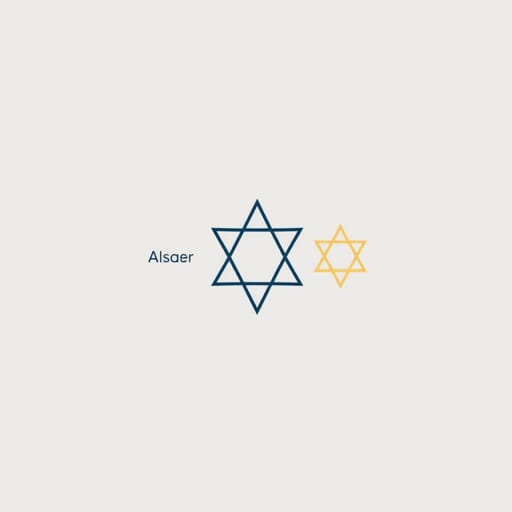For many crossword enthusiasts, clues that reference ancient calendars or religious observances can be both intriguing and challenging. A common type of clue seen in various puzzles relates to the Hebrew calendar, with terms like Adar, Nisan, and Tishri frequently appearing. These words may seem unfamiliar to solvers who aren’t well-versed in Jewish culture or history, but they are central to understanding certain time-related clues. When a crossword clue refers to Adar, Nisan, and Tishri, it’s typically pointing toward something broader the system or category that includes these names, which is the Hebrew calendar. Understanding the significance and placement of these months can provide the key to unlocking such clues with confidence.
What Are Adar, Nisan, and Tishri?
Adar, Nisan, and Tishri are all months in the Hebrew calendar. This ancient calendar is primarily used in Jewish religious traditions and is based on a lunisolar system, meaning it incorporates both the moon cycle and the solar year. Unlike the Gregorian calendar, which most of the world uses today, the Hebrew calendar includes leap years and an extra month to keep the lunar months aligned with the solar seasons.
Placement in the Calendar Year
- Adar: Typically the twelfth month of the Hebrew calendar. In a leap year, there are two months named Adar Adar I and Adar II.
- Nisan: The first month of the Hebrew religious year, though it falls around March or April in the Gregorian calendar. It marks the start of spring and is associated with Passover.
- Tishri: Considered the seventh month religiously, but also marks the beginning of the Jewish civil year. Major holidays like Rosh Hashanah and Yom Kippur occur during Tishri.
These months are not only time markers but are also deeply connected to Jewish festivals and observances, which makes them important terms to understand in crossword puzzles, especially those themed around religion, culture, or history.
Typical Crossword Clue Format
When crossword clues mention Adar, Nisan, and Tishri, they often appear as:
- Adar and Tishri, for example
- Month like Nisan
- Calendar with Adar and Nisan
- Tishri is one
The expected answers for these clues can vary depending on the clue’s wording and the number of available boxes. Common answers include:
- Hebrew Months
- Jewish Calendar
- Lunar Months
- NisanorTishriindividually, if the clue is more specific
Common Crossword Answers
Depending on the puzzle’s construction and the available letter count, one of the most frequent answers to clues involving these months is Hebrew month or simply Adar or Nisan. For example, a five-letter clue with Nisan might be answered with Adar, or vice versa. Longer clues referencing the calendar system as a whole might lead to Jewish year or Hebrew year.
Why These Terms Are Used in Crosswords
Crossword puzzle constructors often look for terms that are short, unique, and culturally rich. Names from the Hebrew calendar meet all of these criteria. Words like Adar, Elul, and Av offer helpful vowels and unusual letter combinations that are attractive for fitting into puzzle grids. They also provide solvers with an educational moment, especially when the puzzle touches on holidays, history, or religious studies.
The Crossword Value of Hebrew Months
From a construction perspective, many Hebrew months are concise and filled with useful letters. Here are a few examples:
- Adar: Four letters, includes a common vowel and consonants, easy to cross with other words
- Elul: Another four-letter month, with two L’s that can help create symmetry
- Iyar: Starts with a vowel, useful in constructing vertical or horizontal words
This makes them popular choices for puzzle designers aiming to balance grid constraints with thematic content.
How to Approach Clues About Adar, Nisan, and Tishri
For crossword solvers, recognizing the context of a clue is critical. Clues that mention months in general may suggest a more straightforward calendar-related answer. But when they specifically include names like Adar or Nisan, your mind should immediately go to the Hebrew calendar. Here are a few solving strategies:
- Pay attention to the clue’s length and specificity. Tishri, for one might suggest month or Hebrew month, while a more elaborate clue could hint at the calendar system itself.
- Use intersecting answers to narrow down possibilities. For example, if you already have A-D-A- filled in, Adar becomes a strong candidate.
- Think culturally. If the crossword has a religious or historical theme, there’s a higher chance that terms like these are drawn from Judaism or ancient history.
Examples in Real Crossword Puzzles
Many well-known crossword puzzles, including those in major newspapers, frequently feature Hebrew calendar references. For instance:
- Clue:Tishri precederAnswer:Elul
- Clue:Hebrew month when Passover fallsAnswer:Nisan
- Clue:Leap year addition in Hebrew calendarAnswer:Adar I
These examples show how specific and thematic these clues can be, rewarding solvers with both challenge and knowledge.
The Broader Importance of Calendar Clues
Calendar-related clues offer a fascinating look into cultural and religious traditions. While Gregorian months like March or July are commonly known, the inclusion of Hebrew months like Tishri or Nisan introduces a broader worldview. Solvers learn not just vocabulary, but also gain exposure to the cycles and celebrations that matter in different communities around the world.
Learning While Solving
Crossword puzzles are not just word games they are tools for learning. When you encounter words like Adar or Tishri in a crossword, you’re also encountering centuries of tradition. These clues provide opportunities to expand your cultural knowledge and better understand global timekeeping systems.
Solving with Awareness
The clue Adar, Nisan, and Tishri is not just a test of memory, but a reflection of a rich cultural tradition. Whether the answer is Hebrew month, Jewish calendar, or one of the months themselves, knowing the structure and significance of the Hebrew calendar can greatly enhance your solving skills. As puzzles continue to evolve and include more diverse content, being familiar with terms from different traditions will make you a stronger and more informed solver.
